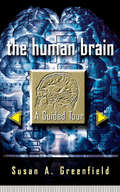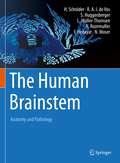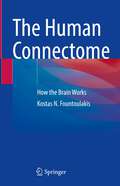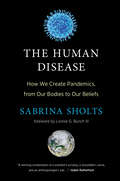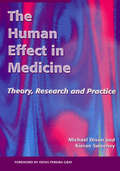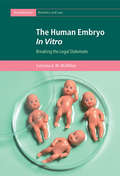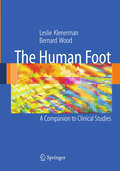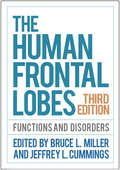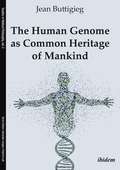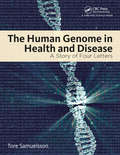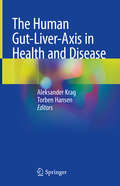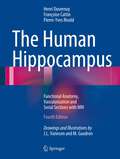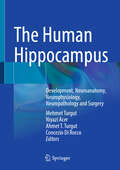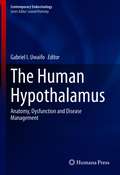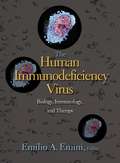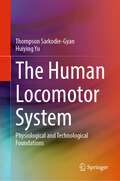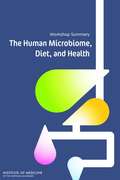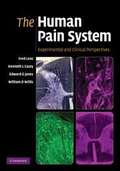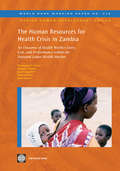- Table View
- List View
The Human Brain during the Third Trimester 260– to 270–mm Crown-Rump Lengths: Atlas of Central Nervous System Development, Volume 12
by Shirley A. Bayer Joseph AltmanThis twelfth of 15 short atlases reimagines the classic 5-volume Atlas of Human Central Nervous System Development. This volume presents serial sections from specimens between 260 mm and 270 mm with detailed annotations. An introduction summarizes human CNS developmental highlights around 6.5 months of gestation. The Glossary (available separately) gives definitions for all the terms used in this volume and all the others in the Atlas. Key Features • Classic anatomical atlases • Detailed labeling of structures in the developing brain offers updated terminology and the identification of unique developmental features, such as germinal matrices of specific neuronal populations and migratory streams of young neurons • Appeals to neuroanatomists, developmental biologists, and clinical practitioners • A valuable reference work on brain development that will be relevant for decades
The Human Brain during the Third Trimester 310– to 350–mm Crown-Rump Lengths: Atlas of Central Nervous System Development, Volume 13
by Shirley A. Bayer Joseph AltmanThis thirteenth of 15 short atlases reimagines the classic 5 volume Atlas of Human Central Nervous System Development. This volume presents serial sections from specimens between 310 mm and 350 mm with detailed annotations. An introduction summarizes human CNS developmental highlights around 9 months of gestation. The Glossary (available separately) gives definitions for all the terms used in this volume and all the others in the Atlas. Key Features • Classic anatomical atlases • Detailed labeling of structures in the developing brain offers updated terminology and the identification of unique developmental features, such as germinal matrices of specific neuronal populations and migratory streams of young neurons • Appeals to neuroanatomists, developmental biologists, and clinical practitioners • A valuable reference work on brain development that will be relevant for decades
The Human Brain: A Guided Tour
by Susan A. GreenfieldWhat would you see if you removed the skull from the human brain and then slowly worked your way deeper and deeper into the brain, to the level of an individual neuron? With renowned brain researcher Susan Greenfield as your guide, here is your chance to gain a bird’s eye view of the human brain--and to learn more about what the brain is, how it works, what happens when one part of the brain is made dysfunctional through stroke or accident, how brain mood-modifying drugs find their targets. In a particularly fascinating chapter, Greenfield surveys for us how a brain is built and then takes us on a tour of the developing brain from the moment of conception. Throughout Greenfield poses the larger questions all readers want to consider, including: At what stage does individuality creep into the developing brain? How does the collection of circuits of neurons give rise not just to an individual brain but an individual consciousness? What might a fetus be conscious of?
The Human Brainstem: Anatomy and Pathology
by Stefan Huggenberger Natasha Moser Hannsjörg Schröder Rob A.I. de Vos Lennart Müller-Thomsen Annemieke Rozemuller Farman HedayatThe human brainstem has long been a neglected area in clinical medicine. This is shown by the fact that there is no introductory book on the neuroanatomy and pathology of this region. This book is intended to introduce the reader to the neuroanatomy of the human brainstem and combines an atlas with detailed information on the individual structures. The atlas features a state-of-the-art magnetic resonance imaging series, histological specimens (Darrow Red and Campbell staining) and a plastinate-based topographical part, which allows direct comparison of histological and topographical findings with neuroimaging. In addition, the reader is guided along the brainstem neuromer model through the human brainstem and learns about the functional properties of the individual structures of the brainstem. Where appropriate, peripheral targets of brainstem structures are illustrated and explained. Furthermore, each chapter covers the most important neurological disorders affecting the brainstem. This book aims to demonstrate that sound anatomical knowledge is required to understand brainstem pathology. It will particularly help those new to the field to better understand the complex anatomy of the human brainstem and will be useful to basic and clinical neuroscientists alike.
The Human Connectome: How the Brain Works
by Kostas N. FountoulakisThis book constitutes the end result of 20 years-long effort that goes beyond a Psychiatrist’s standard clinical training and education, even that of a Psychiatrist that follows an academic career. Trying to explain how the human mind works is hard and the heterogeneity of the audience make the attempt even more difficult. There is a conceptual difference between the words ‘brain’ and ‘mind’and this makes the effort even more difficult since the present book tries to preserve the strict scientific approach concerning all the topics discussed. The work elaborates and tries to answer questions frequently phrased by audiences in teaching classes and in conferences and does not avoid any question. In order to achieve this goal, it is structured in chapters all the way from the molecule and the cell to consciousness and free will. The book targets mainly the mental health care professionals as an audience, and to a lesser extend the other health professionals. It is written according to the author’s view concerning the training and educational needs of Psychiatrists and Psychologists and to a lesser degree of Neurologists and Neuroscientists in general.
The Human Disease: How We Create Pandemics, from Our Bodies to Our Beliefs
by Sabrina SholtsHow the very fact of being human makes us vulnerable to pandemics—and gives us the power to save ourselves.The COVID-19 pandemic won&’t be our last—because what makes us vulnerable to pandemics also makes us human. That is the uncomfortable but all-too-timely message of The Human Disease, which travels through history and around the globe to examine how and why pandemics are an inescapable threat of our own making. Drawing on dozens of disciplines—from medicine, epidemiology, and microbiology to anthropology, sociology, ecology, and neuroscience—as well as a unique expertise in public education about pandemic risks, biological anthropologist Sabrina Sholts identifies the human traits and tendencies that double as pandemic liabilities, from the anatomy that defines us to the misperceptions that divide us.Weaving together a wealth of personal experiences, scientific findings, and historical stories, Sholts brings dramatic and much-needed clarity to one of the most profound challenges we face as a species. Though the COVID-19 pandemic looms large in Sholts&’s account, it is, in fact, just one of the many infectious disease events explored in The Human Disease. With its expansive, evolutionary perspective, the book explains how humanity will continue to face new pandemics because humans cause them, by the ways that we are and the things that we do. By recognizing our risks, Sholts suggests, we can take actions to reduce them. When the next pandemic happens, and how bad it becomes, are largely within our highly capable human hands—and will be determined by what we do with our extraordinary human brains.
The Human Effect in Medicine: Theory, Research and Practice
by Keiran Sweeney Michael DixonHow is modern medicine failing? Why is a more human approach required? This book challenges the dogma of modern technological medicine that ignores both the therapeutic effect of the doctors and the self-healing powers of the patient. It reviews the vast weight of evidence on the effectiveness of this ‘human effect’, and uses the evidence to describe how to use the human effect in everyday practice. This book is about a vision. A vision that practitioners and patients will recognise and regain their therapeutic potential. It provides a shift in perspective on what doctors can achieve. Thoroughly referenced, it is vital for general practitioners, and also very relevant to all doctors, nurses, health managers, policy makers and indeed patients. ‘Pendulums swing in most fields of life, and medicine and general practice are no exceptions. At the mid-point of the twentieth century the human side of medicine was well understood and implicitly accepted by most working practitioners. As the century progressed, the personal aspects came second (but now) the pendulum of thought has started to swing back again towards the personal.
The Human Embryo In Vitro: Breaking the Legal Stalemate (Cambridge Bioethics and Law)
by Catriona A. McMillanThe Human Embryo in vitro explores the ways in which UK law engages with embryonic processes under the Human Fertilisation and Embryology Act 1990 (as amended), the intellectual basis of which has not been reconsidered for almost thirty years. McMillan argues that in regulating 'the embryo' – that is, a processual liminal entity in itself - the law is regulating for uncertainty. This book offers a fuller understanding of how complex biological processes of development and growth can be better aligned with a legal framework that purports to pay respect to the embryo while also allowing its destruction. To do so it employs an anthropological concept, liminality, which is itself concerned with revealing the dynamics of process. The implications of this for contemporary regulation of artificial reproduction are fully explored, and recommendations are offered for international regimes on how they can better align biological reality with social policy and law.
The Human Factor in Nursing Home Care
by David Oliver Sally TuremanIn an attempt to challenge the prevailing attitudes and images of nursing homes in America, the authors have written a touching book about the people and the relationships that are a part of nursing home care. Their extensive study of and experience with nursing home residents and caregivers reveal that our negative and often painful thoughts about nursing homes are not always well-founded. The authors effectively use monologue and dialogue to take the reader into the world of the nursing home to observe the work of the nursing home staffs, from administrators to housekeepers, as they become surrogate families and friends of the patients. Most moving are the thoughts and words of the residents themselves, especially as they describe their initial horror and anger at being in the nursing home, and their feelings of abandonment and loss of self-esteem. Valuable for both undergraduate and graduate courses in nursing, social work, psychology, death and dying, pastoral care and counseling, this comprehensive volume is useful as a primary or supplementary text.BACKCOVER COPY In an attempt to challenge the prevailing attitudes and images of nursing homes in America, David Oliver and Sally Tureman have written a touching book about the people and the relationships that are a part of nursing home care. Their extensive study of and experience with nursing home residents and caregivers reveal that our negative and often painful thoughts about nursing homes are not always well-founded. The authors effectively use monologue and dialogue to take the reader into the world of the nursing home to observe the work of the nursing home staffs, from administrators to housekeepers, as they become surrogate families and friends of the patients. Most moving are the thoughts and words of the residents themselves, especially as they describe their initial horror and anger at being in the nursing home, and their feelings of abandonment and loss of self-esteem. The Human Factor in Nursing Home Care provides a new and refreshing perspective of those who provide care in nursing homes and those who receive it. And, in the end, it challenges the reader to consider his or her own images of aging and of dying.
The Human Factor in the Settlement of the Moon: An Interdisciplinary Approach (Space and Society)
by Konrad Szocik Margaret Boone RappaportApproaching the settlement of our Moon from a practical perspective, this book is well suited for space program planners. It addresses a variety of human factor topics involved in colonizing Earth's Moon, including: history, philosophy, science, engineering, agriculture, medicine, politics & policy, sociology, and anthropology. Each chapter identifies the complex, interdisciplinary issues of the human factor that arise in the early phases of settlement on the Moon. Besides practical issues, there is some emphasis placed on preserving, protecting, and experiencing the lunar environment across a broad range of occupations, from scientists to soldiers and engineers to construction workers. The book identifies utilitarian and visionary factors that shape human lives on the Moon. It offers recommendations for program planners in the government and commercial sectors and serves as a helpful resource for academic researchers. Together, the coauthors ask and attempt to answer: “How will lunar society be different?”
The Human Foot
by Bernard Wood Leslie KlenermanUnique study of the human foot Sole perspective on the human foot in the market
The Human Frontal Lobes, Third Edition: Functions and Disorders
by Jeffrey L. Cummings Bruce L. MillerThis authoritative work, now thoroughly revised, has given thousands of clinicians, students, and researchers a state-of-the-art understanding of the human frontal lobes--the large brain region that plays a critical role in behavior, cognition, health, and disease. Leading experts from multiple disciplines address the anatomy and chemistry of the frontal cortex, neuropsychological assessments of capabilities unique to the frontal lobes, the nature of (and possible treatment avenues for) frontotemporal dementia and related conditions, and implications for understanding and treating neuropsychiatric disorders, such as schizophrenia, mania, and depression. Illustrations include eight pages in full color. New to This Edition: *Reflects a decade of important research advances in such areas as functional connectivity mapping of frontal and frontal-subcortical circuits. *Incorporates significant new information on frontotemporal dementia and other neurological disorders. *Expanded section on neuropsychiatric disorders, with new chapters on apathy, dissociative states, and antisocial behavior. *Chapters on salience networks, normal brain aging, white matter diseases, and clinical trials. *Increased attention to brain processes involved in moral reasoning, empathy, decision making, and other key human capabilities.
The Human Genome as Common Heritage of Mankind (Studies in Medical Philosophy #2)
by Jean ButtigiegIn 1997, the UNESCO General Conference declared the human genome a common heritage of humankind. This declaration was followed by the Joint Statement of March 14, 2000, by US President Bill Clinton and British Prime Minister Tony Blair, in which they stated that the “fundamental data on the human genome, including the human DNA sequence and its variations, should be made freely available to scientists everywhere.” This announcement to allow “unencumbered access” to this fundamental data on the human genome, for the benefit of all humanity, appeared to endorse the UNESCO Declaration of 1997 on the human genome. But as it turns out, these statements were only political slogans since there is a complete lack of any genuine attempts to make the human genome a legal principle of international law so far. This study's foremost goal is to reintroduce the philosophical and political implications of the concept of common heritage of mankind into public discourse, as intended by Arvid Pardo when he addressed the UN General Assembly on November 1, 1967, and apply them to the human genome. In this timely study, Jean Buttigieg demonstrates the necessity to make it a legal principle of international law that the human genome is a common heritage of mankind. As Buttigieg demonstrates, the biggest challenge here comes from the patent system in its present form, which encourages the commercialization of the human genome by explicitly denying scientists “unencumbered access” to the fundamental raw data. By putting individual rights before community rights, the patent system effectively hinders discoveries that prompt new and better medical treatments. Buttigieg also discusses issues of biotechnology. While the biotechnology debate is very often centered on which new applications of biotechnology should or should not be permitted, it so far lacks a critical philosophical analysis of biotechnology itself. The true essence of the human genome, Buttigieg argues, is to be found in metaphysics and not biology. This study fills a gap in the literature on the human genome and the common heritage of mankind by addressing the metaphysical nature of the human genome and discussing the philosophical concerns surrounding the field of biotechnology.
The Human Genome in Health and Disease: A Story of Four Letters
by Tore SamuelssonThe human genome is a linear sequence of roughly 3 billion bases and information regarding this genome is accumulating at an astonishing rate. Inspired by these advances, The Human Genome in Health and Disease: A Story of Four Letters explores the intimate link between sequence information and biological function. <P><P>A range of sequence-based functional units of the genome are discussed and illustrated with inherited disorders and cancer. In addition, the book considers valuable medical applications related to human genome sequencing, such as gene therapy methods and the identification of causative mutations in rare genetic disorders. <P><P>The primary audiences of the book are students of genetics, biology, medicine, molecular biology and bioinformatics. Richly illustrated with review questions provided for each chapter, the book helps students without previous studies of genetics and molecular biology. It may also be of benefit for advanced non-academics, which in the era of personal genomics, want to learn more about their genome. <P><P> Key selling features: <P><P>Molecular sequence perspective, explaining the relationship between DNA sequence motifs and biological function <P><P>Aids in understanding the functional impact of mutations and genetic variants <P><P>Material presented at basic level, making it accessible to students without previous studies of genetics and molecular biology <P><P>Richly illustrated with questions provided to each chapter
The Human Gut-Liver-Axis in Health and Disease
by Torben Hansen Aleksander KragThe book brings together the current knowledge and future perspectives of the complex physiology and pathophysiology of gut-liver interactions in health and disease. It provides readers with a unique overview and access to knowledge that cannot be obtained elsewhere.The structure is logical and covers all aspect including the normal physiology, changes in various liver diseases, technology, sample collection and various interventions. Thus suitable for general reading, lookup for specific questions or as a reference book within the area.The book allows the reader to access all the knowledge that has been generated within the last 10 years in this field.
The Human Hippocampus
by Francoise Cattin Henri M. Duvernoy Pierre-Yves RisoldThis new edition, like previous ones, offers a precise description of the anatomy of the human hippocampus based upon neurosurgical progress and the wealth of medical imaging methods available. The first part describes the fine structures of the hippocampus and is illustrated with new original figures. A survey is then provided of current concepts explaining the functions of the hippocampus, and the external and internal hippocampal vascularization is precisely described. The last and main part of the book presents serial sections in coronal, sagittal, and axial planes; each section is accompanied by a drawing to explain the MR 3T images. The new edition is also enriched by several MRI views of major hippocampal diseases. This comprehensive atlas of human hippocampal anatomy will be of interest to all neuroscientists, including neurosurgeons, neuroradiologists, and neurologists.
The Human Hippocampus: Development, Neuroanatomy, Neurophysiology, Neuropathology and Surgery
by Mehmet Turgut Concezio Di Rocco Ahmet T. Turgut Niyazi AcerWritten and edited by leading international authorities in the field, this book provides an in-depth review of knowledge of human hippocampus, and role of the hippocampus in memory, cognition and learning. It includes informative chapters organized into two main groups: (1), fundamental information about the human hippocampus, including history, development, neuroanatomy, neurophysiology, neuropathology, structural and synaptic plasticity, volume, 3D visualition of the human hippocampus and etc.; and (2) role of the hippocampus in memory, cognition and learning, including role of the hippocampus in cognition, time and memory, learning and etc. There are some unique features about this book: cross-references within chapters to highlight connections between development, anatomy, physiology, pathology, and surgery, real-world examples to illustrate key points and practical applications, summaries of the latest research to keep readers informed of cutting-edge developments. Thus, this comprehensive reference book will be an ideal source for neuroscientists at all levels, from graduate students to researchers in specific disciplines studying this region including neurosurgeons, neurologists, neuroradiologists, neuroanatomists and psychiatrists who seek both basic and more advanced information regarding the human hippocampus.
The Human Hypothalamus: Anatomy, Dysfunction and Disease Management (Contemporary Endocrinology)
by Gabriel I. UwaifoThe hypothalamus is an anatomically small but functionally important part of the brain. In functional and pathophysiological terms, the hypothalamus represents the intersection of several areas of clinical and medical expertise. The human hypothalamus can be astutely referred to as the crossroad of endocrinology, psychiatry, neurology and neurosurgery. Because of its involvement in myriad physiologic functions and the varied ways disorders involving it can manifest, hypothalamic disease can initially come to medical attention in widely disparate settings and with widely different clinicians. Therefore, the detection and proper care of hypothalamic dysfunction and disease often requires carefully coordinated multidisciplinary care.This volume fills a significant void in the medical professional community, comprehensively presenting the scope of hypothalamic structure, function, dysfunction and disease to cater to the various clinical, teaching and research professionals that have a stake in this part of the human brain. This text captures in one place all the information that practicing clinicians, clinician scientists, and researchers need to be adequately informed about various aspects of the hypothalamus in all its complexity. It is comprehensive and broad in scope so that it provides relevant reference information for the wide range of professionals involved in the pre- and post-mortem detection, diagnosis, characterization, care and management of various hypothalamic disorders and diseases in addition to providing a sound anatomic and physiologic foundation of the normal human hypothalamus. The Human Hypothalamus can be used to differing degrees by medical professionals and students alike, finding utility for interested general clinicians, medical school and allied health professional teaching faculty as well as subspecialists in domains as wide as neurosurgery, neuroendocrinology, clinical psychiatry and neuro-oncology.
The Human Immunodeficiency Virus: Biology, Immunology, and Therapy
by Emilio A. EminiThe past few years have witnessed an explosive increase in our collective knowledge of the biology of the human immunodeficiency virus (HIV). Researchers have acquired new understanding of the virus's biochemistry, molecular biology, pathogenesis, genetics, and immunobiology. Resulting therapeutic advances have significantly prolonged the lives of thousands. Yet, the need to develop better therapies is ever more acute and--given the virus's continued spread through the human population--the need for an effective vaccine is urgent. These goals can be accomplished only through the experienced synthesis of information from the many disciplines participating in HIV research and through the insights of new investigators. This volume is designed to lower the barriers imposed on investigators by the sheer volume of available information--information that often can be found only in far-flung and specialized journals. It provides, in a single resource, an in-depth overview of the diverse areas that constitute HIV research. The result is a broad introduction for students and researchers new to the field as well as an integrated overview for researchers specialized in particular areas of HIV investigation. The volume will also benefit those seeking technical understanding of the virus's biology, including physicians treating HIV-infected patients. Each chapter is a comprehensive presentation of one area of current AIDS research--including work on the virus life cycle, epidemiology, genetics, protease and reverse transcriptase inhibitors, receptor and co-receptor interactions, therapeutic targets, clinical treatment, immunobiology, and vaccines--written by a leading researcher in that area. The contributors are Jon P. Anderson, Jan Balzarini, Elana Cherry, Thomas J. Coates, Chris Collins, Jon H. Condra, Mark B. Feinberg, Richard B. Gaynor, Matthias Götte, Daria J. Hazuda, Spyros Kalams, Nathaniel R. Landau, Gerald H. Learn, Norman L. Letvin, James I. Mullins, Willscott E. Naugler, David Nickle, Matthew Rain, Allen G. Rodrigo, Daniel Shriner, Shalom Spira, Mario Stevenson, Todd Summers, Catherine Ulich, Joseph P. Vacca, Mark A. Wainberg, Bruce D. Walker, and Yang Wang.
The Human Locomotor System: Physiological and Technological Foundations
by Thompson Sarkodie-Gyan Huiying YuThe textbook describes the complexity of the human dynamic behavior in space and its ability to produce coordinated, adaptive, dynamically stable movements under steady conditions while negotiating complex terrains and experiencing unexpected perturbations. Applying fundamental theories of biomechanics and physiology, the authors further consider the physical, perceptual, and motor aspects of the locomotor system towards the analysis of how humans can behave adaptively in space by virtue of their intelligent sensory-motor functions and to illuminate our understanding of how this complexity in behavior can provide insight into the neural control of locomotion of the musculoskeletal system. The text provides a foundation for describing the normal and abnormal human locomotor systems. The Human Locomotor System: Physiological and Technological Foundations is intended as a primary text for upper-undergraduate and graduate-level courses in neuroscience, gait analysis, kinesiology, physical therapy, sports science, and biomedical and rehabilitation engineering. It is also a valuable professional reference for scientists and engineers at medical and pharmaceutical companies involved in bioengineering research and development.
The Human Microbiome, Diet, and Health
by Institute of Medicine Food Forum Food and Nutrition Board Leslie Pray Emily Tomayko Laura PillsburyThe Food Forum convened a public workshop on February 22-23, 2012, to explore current and emerging knowledge of the human microbiome, its role in human health, its interaction with the diet, and the translation of new research findings into tools and products that improve the nutritional quality of the food supply. The Human Microbiome, Diet, and Health: Workshop Summary summarizes the presentations and discussions that took place during the workshop. Over the two day workshop, several themes covered included: The microbiome is integral to human physiology, health, and disease. The microbiome is arguably the most intimate connection that humans have with their external environment, mostly through diet. Given the emerging nature of research on the microbiome, some important methodology issues might still have to be resolved with respect to undersampling and a lack of causal and mechanistic studies. Dietary interventions intended to have an impact on host biology via their impact on the microbiome are being developed, and the market for these products is seeing tremendous success. However, the current regulatory framework poses challenges to industry interest and investment.
The Human Microbiota and Microbiome (Advances in Molecular and Cellular Microbiology)
by Larry Forney Tom van de Wiele Jia Li Takahiro Matsuki Wim Crielaard Markus Egert Ken Bruce Elaine Holmes Huiying Li Marco Ventura Andrew GoodmanThousands of different microbial species colonize the human body, and are essential for our survival. This book presents a review of the current understanding of human microbiomes, the functions that they bring to the host, how we can model them, their role in health and disease and the methods used to explore them. Current research into areas such as the long-term effect of antibiotics makes this a subject of considerable interest. This title is essential reading for researchers and students of microbiology.
The Human Pain System
by Frederick A. Lenz Kenneth L. Casey Edward G. Jones William D. WillisPain is a subject of increasing scientific and clinical interest. Studies of non-primate animal models have contributed greatly to our knowledge of pain. Nonetheless, investigators often refer to basic neuroscientific and behavioral studies of humans and non-human pain. Likewise, the interpretation of human pain studies and clinical observations relies upon understanding the relevant anatomy and physiology as gleaned from animal, and especially primate, research. Here, Lenz, Casey, Jones, and pain in humans, to provide a firm basis for understanding the mechanisms of normal and pathological human pain. This book is essential reading for anyone interested in pain research. Book jacket.
The Human Resources for Health Crisis in Zambia
by Mirja Sjöblom Agnes Soucat Christopher H. Herbst Monique Vledder Karen Campbell'The Human Resources for Health Crisis in Zambia' is part of the World Bank Working Paper series. These papers are published to communicate the results of the Bank's ongoing research and to stimulate public discussion. Despite reporting some health gains since the 1990s, health outcomes remain poor in Zambia and it will be very challenging to achieve the health-related Millennium Development Goals by 2015. The Government of Zambia recognizes that the improvement of child and maternal health and the reduction in mortality from HIV/AIDs and malaria require better access to an appropriate number of wellperforming health workers or human resources for health (HRH). This paper compiles recent evidence on the Zambian health labor market and provides some baseline information on HRH to support the government address its HRH challenges. In addition, the paper analyzes the available evidence on the national health labor market to better understand the number, distribution, and performance of HRH in Zambia.The paper also explains HRH outcomes by mapping, assessing, and analyzing pre-service education and labor market dynamics and well as the core factors influencing these dynamics. This working paper was produced as part of theWorld Bank's Africa Region Health Systems for Outcomes (HSO) Program.The Program, funded by the World Bank, the Government of Norway, the Government of the United Kingdom, and the Global Alliance for Vaccines and Immunization (GAVI), focuses on strengthening health systems inAfrica to reach the poor and achieve tangible results related to Health, Nutrition, and Population.The main pillars and focus of the program center on knowledge and capacity building related to Human Resources for Health, Health Financing, Pharmaceuticals, Governance and Service Delivery, and Infrastructure and ICT. More information as well as all the products produced under the HSO program can be found online at www.worldbank.org/hso .
The Human Respiratory System: An Analysis of the Interplay between Anatomical Structure and Breathing Dynamics
by Clara Mihaela IonescuThe Human Respiratory System combines emerging ideas from biology and mathematics to show the reader how to produce models for the development of biomedical engineering applications associated with the lungs and airways. Mathematically mature but in its infancy as far as engineering uses are concerned, fractional calculus is the basis of the methods chosen for system analysis and modelling. This reflects two decades' worth of conceptual development which is now suitable for bringing to bear in biomedical engineering. The text reveals the latest trends in modelling and identification of human respiratory parameters with a view to developing diagnosis and monitoring technologies. Of special interest is the notion of fractal structure which is indicative of the large-scale biological efficiency of the pulmonary system. The related idea of fractal dimension represents the adaptations in fractal structure caused by environmental factors, notably including disease. These basics are linked to model the dynamical patterns of breathing as a whole. The ideas presented in the book are validated using real data generated from healthy subjects and respiratory patients and rest on non-invasive measurement methods. The Human Respiratory System will be of interest to applied mathematicians studying the modelling of biological systems, to clinicians with interests outside the traditional borders of medicine, and to engineers working with technologies of either direct medical significance or for mitigating changes in the respiratory system caused by, for example, high-altitude or deep-sea environments.


